19 garden improvements that could be breaking the law
Could these simple garden tasks be illegal?
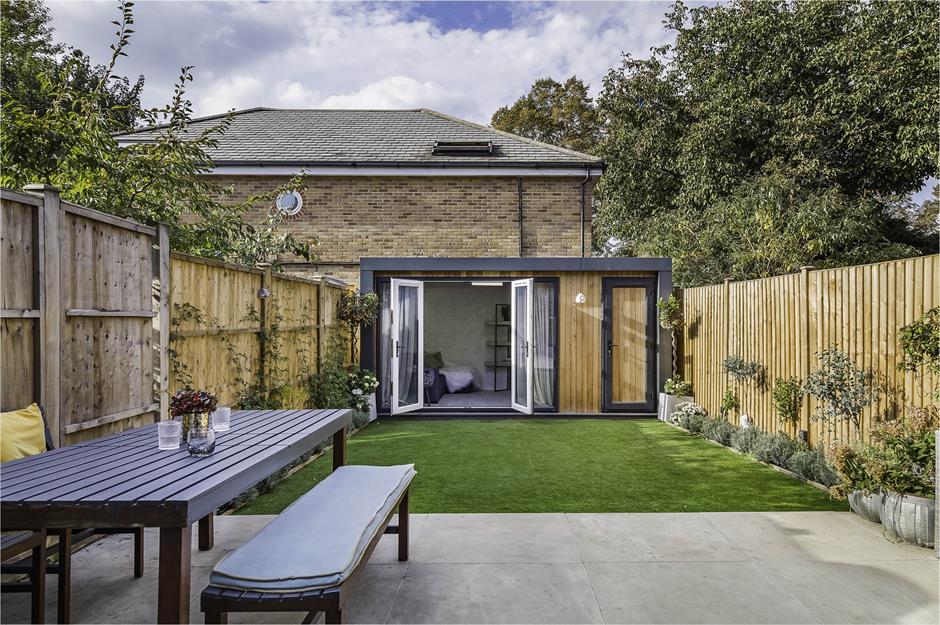
Having an outside space can be a real blessing, especially when the sun is shining. But our gardens can also be hotbeds for hidden issues and surprise costs.
From ignoring problem plants to installing an outbuilding without permission, your garden tasks and improvements could end up costing you big – and not just financially!
Click or scroll on to take a look at the garden activities that should be handled with care, to avoid breaking the law...
Ignoring problem plants
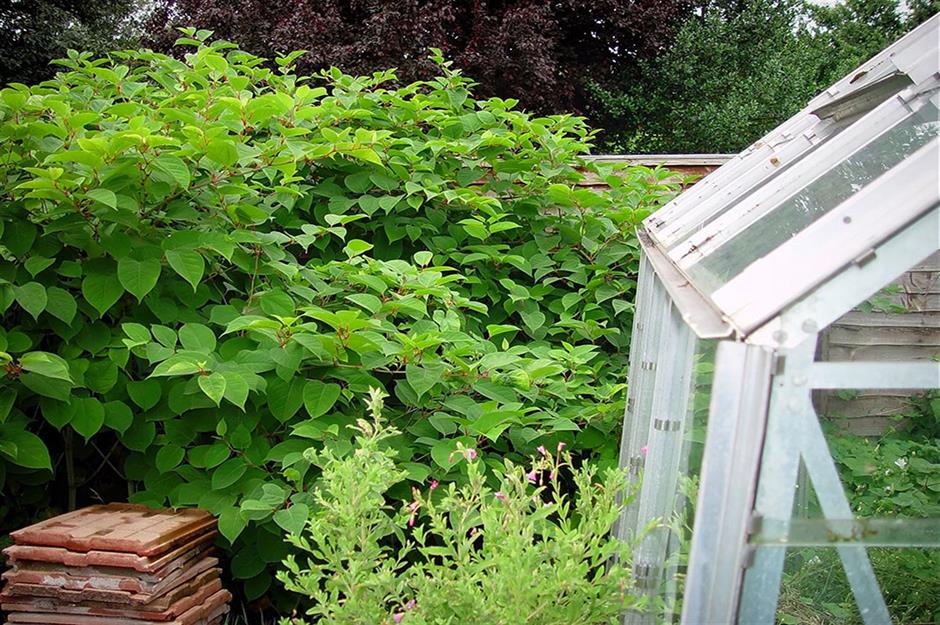
We don't always have time to tend to our gardens, but ignoring your outside space could land you in hot water. If you find invasive, non-native plants, such as Japanese Knotweed and Giant Hogweed, you have a duty to stop them from spreading and causing damage to other properties.
If you fail to tackle the issue properly – most require a professional to remove and dispose of them safely – you could be liable for any damages and be slapped with a fine of up to £30,000. You might even be prosecuted and sent to prison for a maximum of three months.
Introducing new plants

You can plant as many flowers as you like, but you must be careful about what varieties you introduce. There are countless invasive and non-native species that you are not allowed to grow in your garden, under the Wildlife and Countryside Act (1981). For example, three-cornered garlic and Rhododendron ponticum.
Other plants, like bamboo, must be planted with care, and it's important to take measures to prevent them from spreading into neighbouring gardens. So, always do your research before planting anything new.
Removing or pruning trees
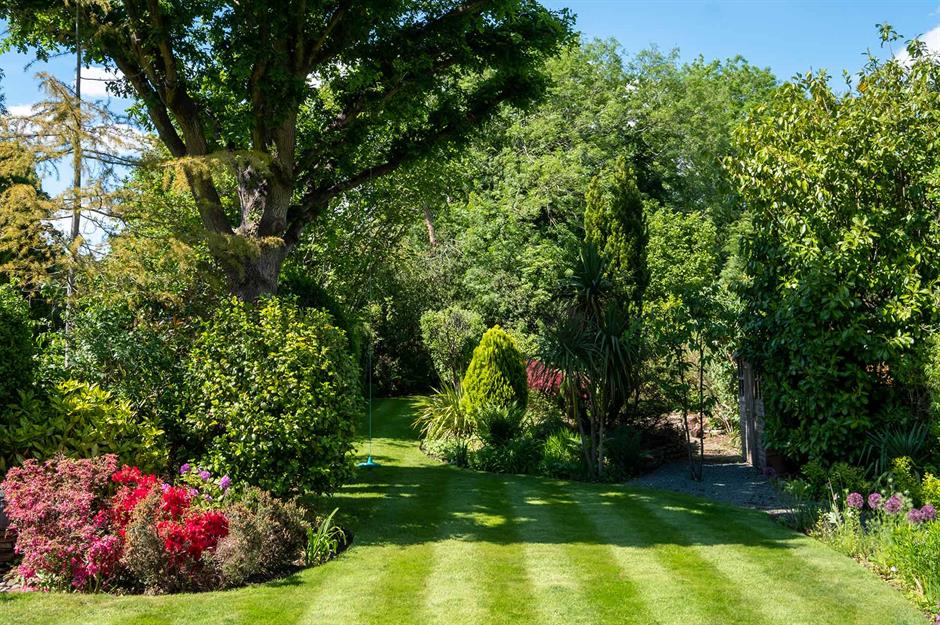
This one might be surprising, but removing or cutting back trees could be illegal. That's because some are safeguarded under a Tree Preservation Order (TPO). This is a written order created by a local planning authority, which makes it an offence to prune, lop, uproot, wilfully damage, or destroy a certain tree without the authority’s permission.
Protected trees are usually historic or located within a Conservation Area. If you deliberately destroy or damage a protected tree, you could be liable to an unlimited fine, with some paying as much as £20,000.
Installing a new driveway

It might sound odd, but you may not be allowed to install a new driveway without express consent. You will need to apply for planning permission if you're widening your driveway or creating a new one, where one previously didn't exist. This is especially true if you have to create a new access point from a public road.
There are also a handful of rules you need to follow to ensure your driveway meets building regulations. For example, they must either be built from a permeable or porous surfacing material, or adequate drainage must be installed to divert rainwater.
Featured garage door available from Hillarys
Paving over your front garden

After serious flooding affected the UK in 2007, the government announced new rules about garden paving. Our drains are failing to cope with increased rainfall, and paved gardens are adding to the issue.
So, anyone replacing grass or soil in their front garden with non-permeable paving over 53.8 feet (5sqm) requires planning permission to prevent localised flooding. Those who don't follow the rules could face an unlimited fine or a fee of up to £50 per day.
Featured outdoor tiles available from Baked Tile Co
Crossing your fence or boundary line

If you share a boundary with a neighbour, then you'll likely know that there are strict laws about crossing it. So, if you accidentally build a fence or wall that crosses into your neighbour's garden, you could face legal action and a hefty fine.
To determine your property's boundary, check your title deeds and title plan on the Land Registry website. It's also always a good idea to speak with your neighbour before undertaking any work that may affect them and their garden.
Featured outdoor wall panels available from Naturewall
Going too high with hedges or fences

It isn't just about ensuring your fence or hedge doesn't cross a boundary line, either. Your garden parameter can't be too high. That's because under the Rights of Light Act (1959), your neighbours are entitled to enjoy natural light passing over somebody else's land to their own.
If your fence or hedge is blocking that light, then you could be open to legal action. If you're building a new parameter, then you will need planning permission if it exceeds 6.5 feet (2m) in height. For gardens facing a public road or path, the maximum height is typically 3.3 feet (1m).
Adding a troublesome trampoline
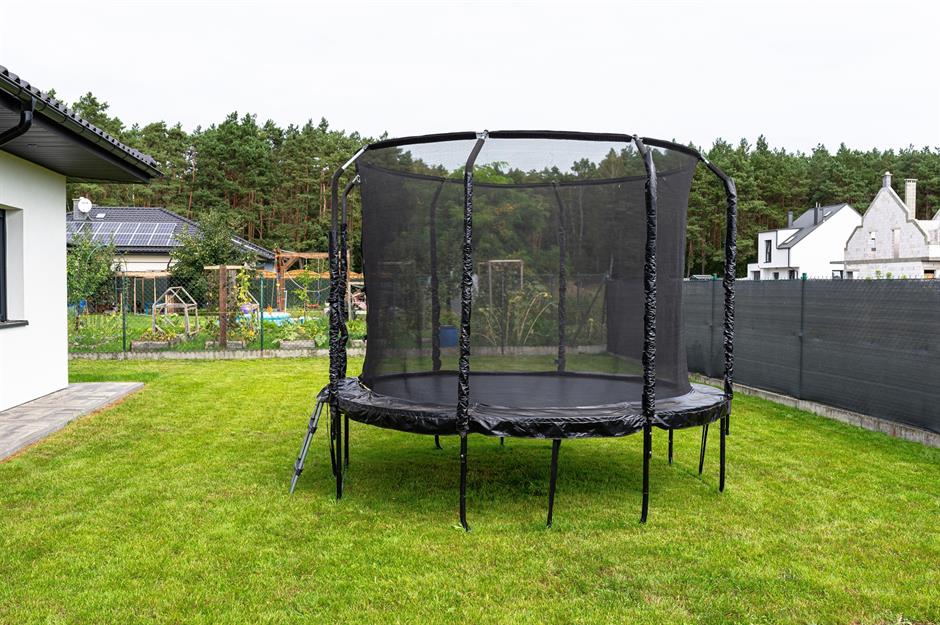
Trampolines can be a fantastic way of keeping the kids entertained throughout the year, but did you know that they could sometimes lead to legal disputes and problems with neighbours? Of course, everyone has a right to enjoy their garden, but you must ensure your neighbours' privacy is retained.
Therefore, the height and placement of a trampoline should be carefully considered. Don't place one too close to your neighbour's boundary, and ensure it is on the lowest ground possible if your garden is on a slope. Your neighbours may also be concerned about noise disruptions, so proceed with caution.
Hot tub hiccups

Of course, having a hot tub isn't illegal, but you need to abide by certain rules and ensure yours isn't causing your neighbours any problems. Generally, you don't need planning permission for a hot tub, unless you're also constructing an elaborate gazebo or decking area for it. You may also need to consider access and drainage.
Yet the biggest things to think about are how disruptive your hot tub might be for those living nearby. A late-night party in the Jacuzzi could quickly lead to a legal dispute.
Adding a conservatory or rear extension

Adding a rear extension or conservatory is a great way to boost your internal living space and create that all-important indoor-outdoor connection. However, planning permission might be needed.
Generally, work like this falls under Permitted Development, but there are size and height limitations, as well as other restrictions. Failure to comply with these rules or not applying for the necessary permissions could result in a £5,000 fine and the demolition of the new addition.
Featured outdoor paving available from Tile Mountain
Mishandling garden waste
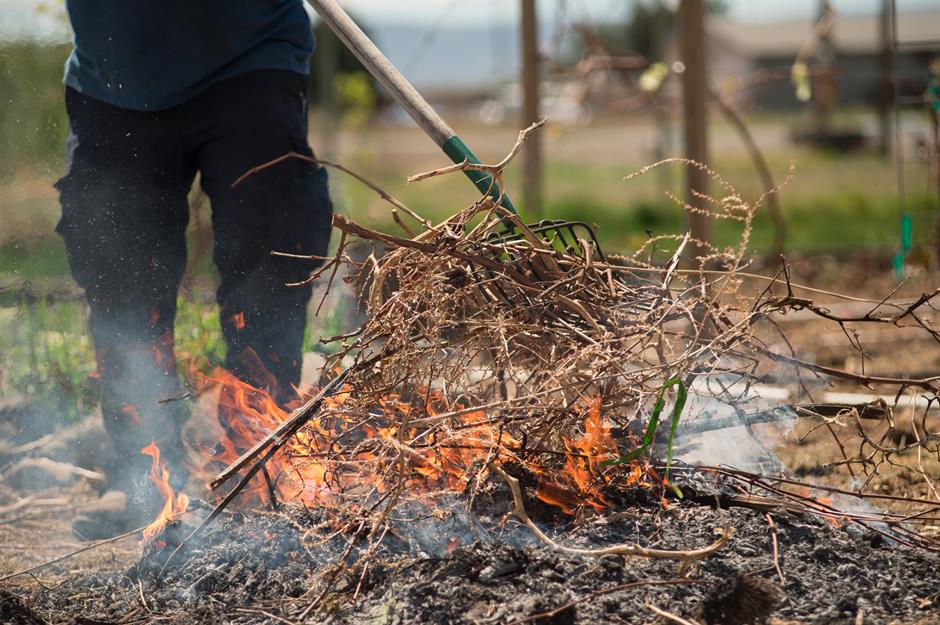
While a lot of organic materials, like branches, leaves, and plants, can be disposed of in compost bins or dropped off at your local tip, other items are harder to get rid of. However, you must dispose of any garden waste safely and responsibly.
It's illegal to pollute the air, cause health issues, and disrupt neighbours, pets, and wildlife. This can include excessive smoke and burning plastics, painted or treated timber, rubber, leftover paint cans, and aerosols or chemical containers. Those ignoring the rules can face legal notices or fines of up to £5,000.
Ignoring decking dimensions

Creating a new decked area in the garden can be a fantastic way of making the most of your outside space. But you must comply with the law to avoid fines or legal action.
Any decking should not be installed more than 30cm above the ground and, together with any extensions or outbuildings, it cannot cover more than 50% of your garden. If any of these aren't the case, then you will need to apply for planning permission.
Featured garden furniture available from OKA
Trimming your neighbour’s hedges
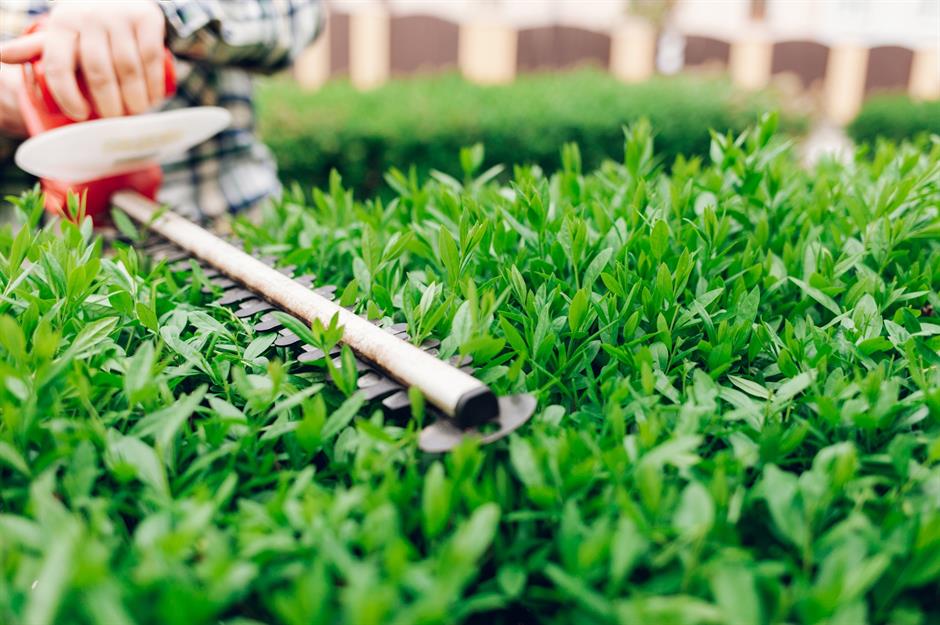
If your neighbour's bush or tree is protruding into your garden, then you may consider trimming it yourself. But, proceed with caution! You technically only have a right to trim to the edge of your own property. Venturing further could be considered trespassing, so it's best to speak to them before doing anything.
Removing a boundary hedge or fence without your neighbour's permission could also be an issue and could violate their property rights. Finally, if you're cutting your own bush or hedge and its branches fall into a neighbouring property, you could be fined between £400 and £1,000 for fly-tipping.
Trimming your own hedge
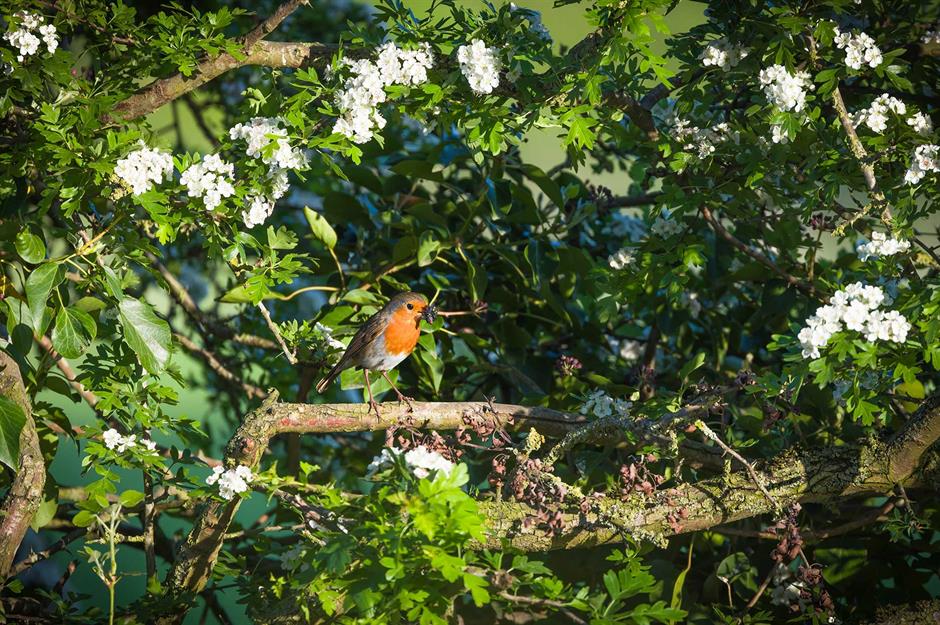
Ok, hear us out. Of course, you're within your rights to trim your own hedge, but you must ensure any wildlife that might be nesting in said hedge is protected. After all, it is illegal to intentionally or recklessly disturb any wild birds or their nests, and the penalty for doing so can be an unlimited fine and up to six months in prison.
The Wildlife Trusts suggests that no cutting should take place during peak bird nesting season, which runs from March to September. It suggests trimming hedges on a two- or three-year rotation and doing so in either January or February.
Disrupting wildlife
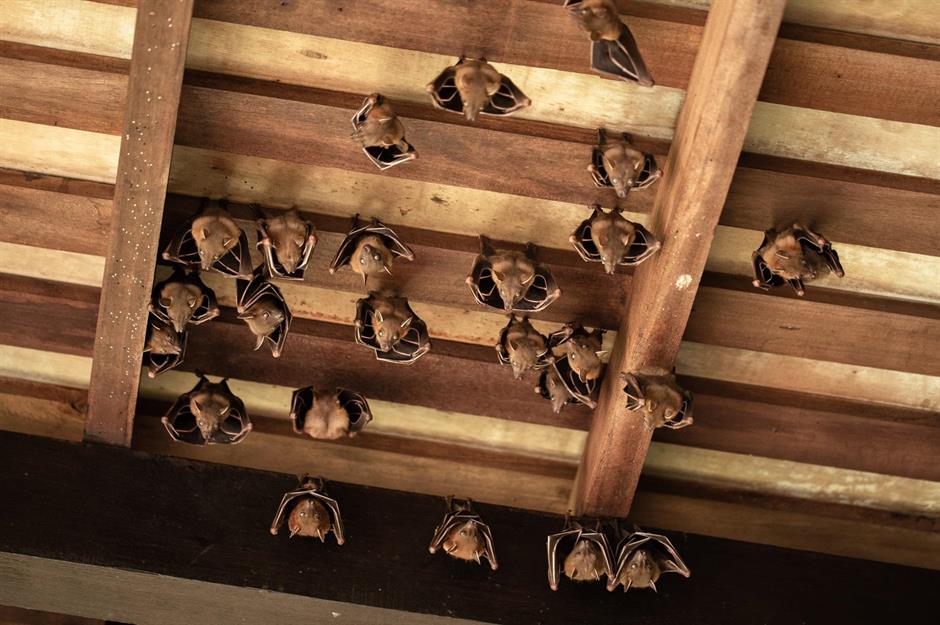
Talking of disrupting wildlife, did you know that numerous protected species in the UK cannot be disturbed or harmed? For example, if you are considering knocking down an old garage or shed, but you discover bats or owls nesting inside, then you will be limited in what you can do.
Seek professional advice about how to proceed. In most cases, the only course of action is to wait for the animals to leave and do your bit to discourage them from returning. Failure to leave these creatures alone could result in imprisonment and a hefty fine. For example, you could be fined up to £5,000 per bat.
Picking fruit or blooms

The UK is filled with keen gardeners, with 35% of homeowners growing their own herbs, fruits, and vegetables. So, you might be tempted to pick a few berries from an overhanging branch, or take a cutting from a neighbour's tree without asking permission.
But harvesting without their consent is actually considered stealing, according to UK garden laws. Even if the fruit has fallen into your garden naturally, it remains your neighbour’s lawful property, and they are entitled to ask for it back.
Installing security cameras

We all want a home where we feel safe, which is why more of us are turning to video doorbells and security cameras. However, there are rules that all homeowners must abide by. Data protection laws apply, and your neighbours have a right to privacy.
So, where possible, you must position any cameras to only capture your property. The government advises that you minimise intrusion into other people’s privacy, inform your neighbours about your plans to install cameras, and let them know when recording is taking place. You are also legally responsible for any recorded information, and it must be stored securely.
Raising or lowering your garden
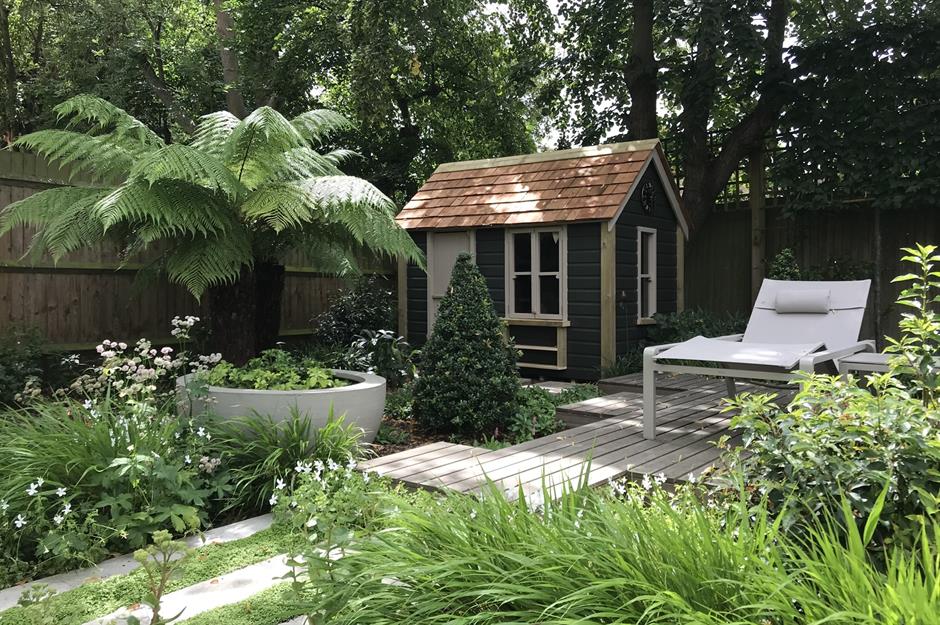
If you’re looking to redo your landscaping, you might consider raising or lowering the level (or levels) of your garden to create more space and character. However, doing so could affect drainage, underground pipework, retaining walls, and even your neighbour’s property.
Speak with your local authority before making any alterations and apply for planning permission if you want to alter the level of your garden by more than 11.8 inches (30cm).
Featured wood paint available from Thorndown Paints
Building a new shed or outbuilding
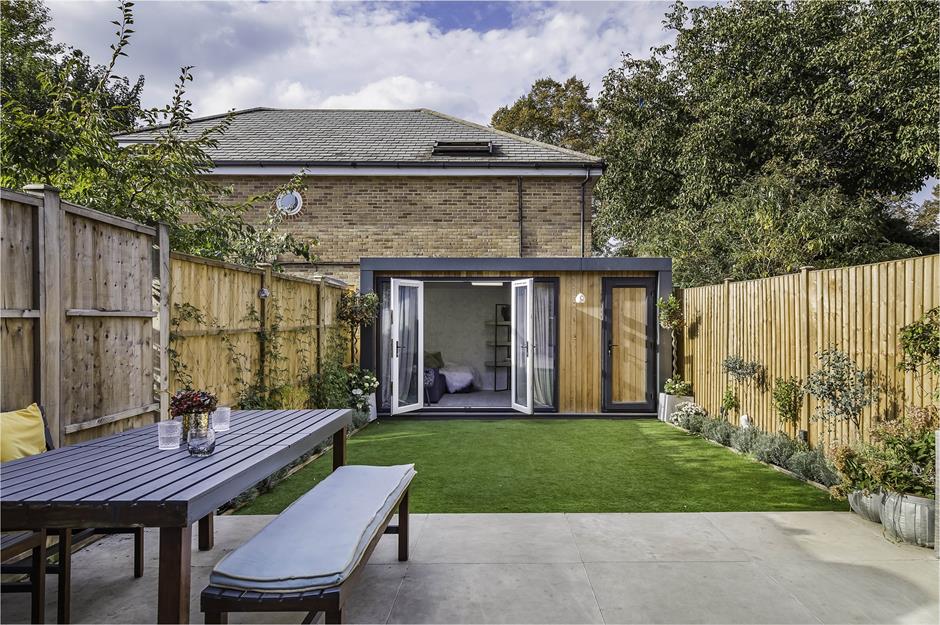
A new shed or a small garden room is a great way to boost space and storage, and even add value to your home. If you’re opting for a model that's less than 8.2 feet (2.5m) high and is 3.3 feet (1m) away from any boundaries, you likely won't need planning permission. It should also not be intended as overnight accommodation.
But, it's always worth speaking with your local authority to ensure your planned works fall within permitted development. If not, you could face a fine and be forced to remove your new exterior space.
Featured garden room available from Green Retreats
Loved this? Take a look at more savvy garden ideas
Comments
Be the first to comment
Do you want to comment on this article? You need to be signed in for this feature